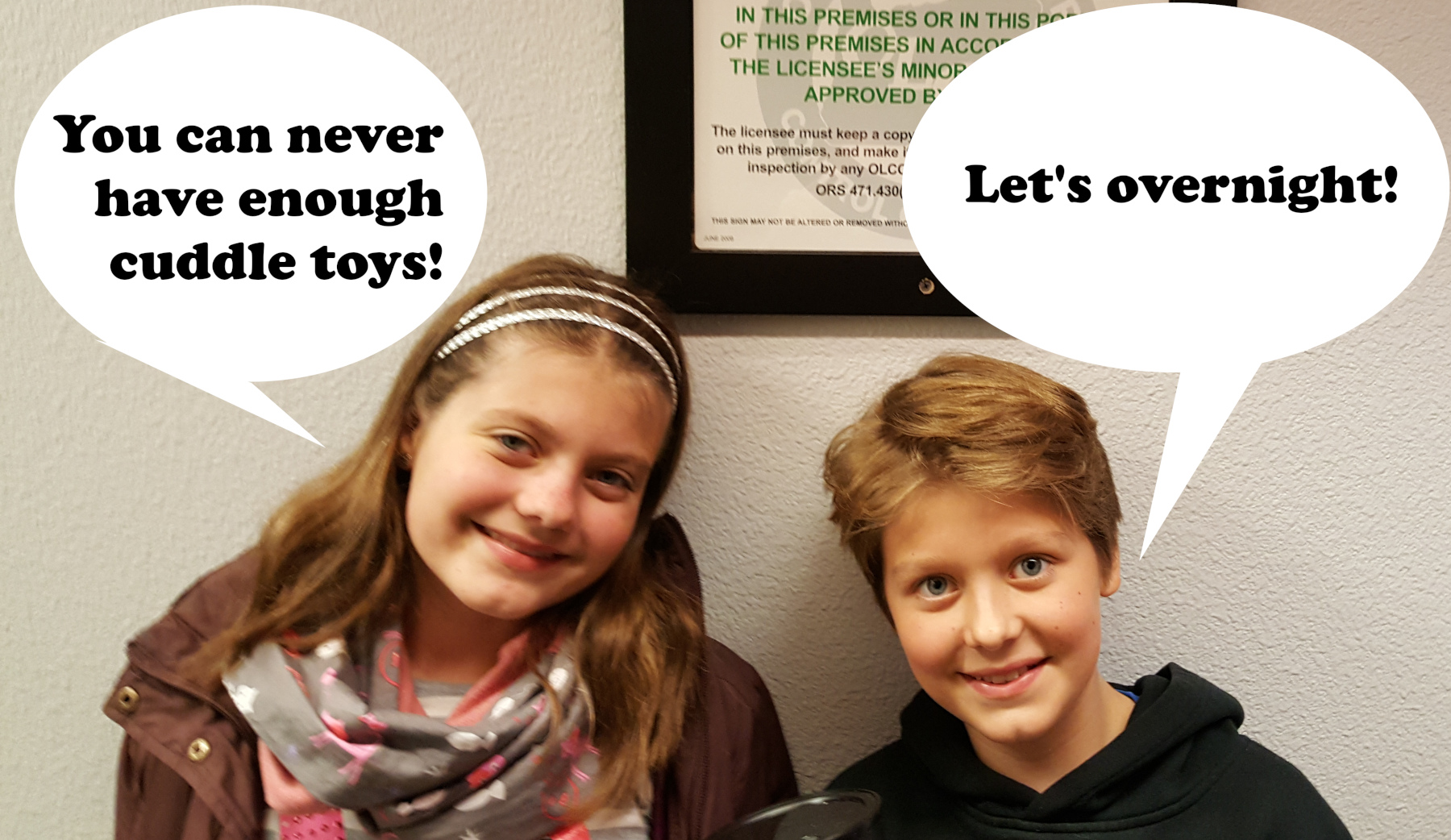When we had our kids, we swore we were going to write down everything cute or smart that they said. Every parent says this. But then they started saying so many cute and smart things and we were so busy with the actual parenting part of parenting that we just forgot. Which is unfortunate because, since we raised bilingual kids, they were saying twice as many cute and smart things, and sometimes even on purpose. But we remembered a few.
First off, we always sent them to bi-lingual daycares and schools, and we did that each-parent-exclusively-speaks-their-native-tongue method of bilingual child-rearing. Some academic has probably given it a better name but that’s what I call it: The each-parent-exclusively-speaks-their-native-tongue method of bilingual child-rearing. I spoke English to our kids and my German wife spoke German. I was, ahem, a fascist about it and never broke character. I found it difficult in small groups, like on playgrounds, because I’d be explaining something to my kids in English while some random German kid would stare at me dumbfounded. I would then translate it to German, which always felt super-pretentious.
But, like I said, I was being a fascist about it. Any time they spoke to me in German I would even say, “I don’t understand you” or the now-ridiculous sounding, “How does dad say it?” And they would always then switch to English. Because they’re the most awesome kids on the planet. Still, every time I told them I didn’t understand their German, I expected them to look at me dumbfounded and say, “Dad, I know you understand my German because I just heard you explain to that kid in German that the plastic dumptruck is mine but the pink starfish sand form was already on the playground when we got there.” But they never did. They believed us so wholeheartedly that when they wanted to tell us both something they would first say it in one language and then the other – a habit they still have as teenagers.
Truly bilingual kids
One night, I came in to find my wife and daughter sitting at the kitchen table. My daughter was about four at the time. I said something to her and she started laughing so hard that tears started to run down her cheeks. My wife and I looked at each other confused. “Mama!” she said to my wife. “Papa spricht deutsch mit mir!” (Dad’s speaking German with me!). I’d been at the beergarden and had probably stayed a bit too long. I switched to English and we all three laughed. We’re still laughing.
Another time we were on vacation in Italy with friends who have two sons. Our friends are Croatian and American but they live in Amsterdam, which means their two sons speak Dutch, English and Croatian. Yes, fluently. Our kids understood that the two boys were multi-lingual but my daughter couldn’t understand that they didn’t speak German.
“Hey,” my wife said to her. “They’re like the kids in your daycare and speak several languages but you have to speak English to them or they won’t understand.”
“I know,” my daughter said. “Just like the kids in the daycare.” And she continued to speak German with them. The odd part was that she would always speak English to their parents. My friend’s sons are nice, caring kids but it frustrated them that they would speak English to her and she would answer in German. So they just started speaking Croatian to her.
She finally switched.
In addition to anecdotes, there were vocabulary oddities. Only recently have my kids started saying “sleepovers”. For years they just anglicized the German übernachten: Overnighting. And they still don’t own any stuffed animals — they’re all cuddle toys (Kuscheltiere). I thought more of it would disappear during two years in Portland but in addition to the cuddle toys and overnighting, they also still ask if something “tastes”. Not “tastes good” or “tastes bad”, just “tastes”. Because in German, if something “tastes” it means it tastes good – you don’t need the adjective. But if it tastes bad, you need a whole sentence – “Es schmeckt mir nicht!” (It doesn’t taste to me!). My son would also like an English equivalent of “und so weiter” (and so on) in English when he doesn’t know how to end a story. Lately he’s started saying, “and whatsoever”, which is close.
But the funniest thing he ever said was one day when I was being a goofy dad, rough housing with him. He was laughing and laughing and said, “Dad! You’re spinning!” Because in German, acting crazy is a single verb: Spinnen as in, Papa, du spinnst!
There, now I’ve written down some of the cute and smart things my kids said.
